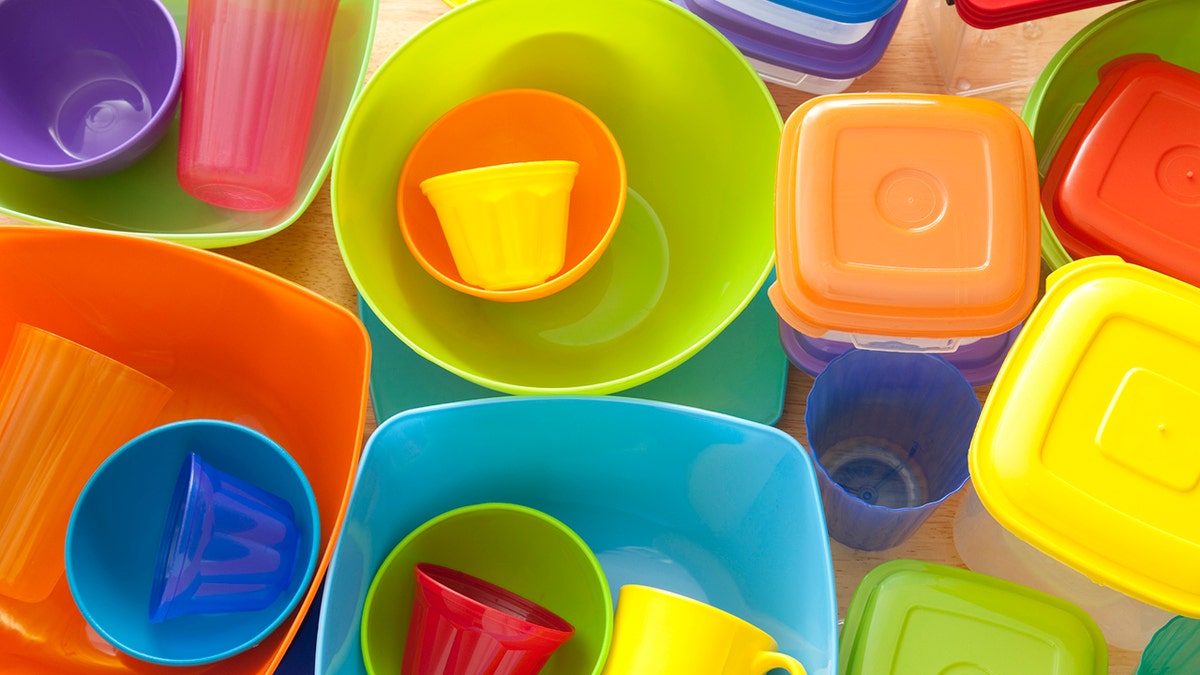
Using plastic containers to store food, as well as microwaving food in plastic containers, can pose health risks for children, the report says. (iStock)
Heads up, parents: A recent report from the American Academy of Pediatrics (AAP) cautions against using plastic containers to store your children’s food.
More specifically, physicians with the AAP warn against microwaving food in plastic, as a variety of the chemicals used to make plastic can come into contact with food when microwaved. The academy claims these chemicals pose health risks, especially for children.
MOM DIES AFTER BEING SERVED UNCOOKED CHICKEN ON VACATION, LAWSUIT CLAIMS
For instance, bisphenols, such as BPA, are often used to harden plastic. But this chemical “can act like estrogen in the body and potentially change the timing of puberty, decrease fertility, increase body fat, and affect the nervous and immune systems,” the AAP said.
Additionally, phthalates, which make plastic more flexible, “may affect male genital development, increase childhood obesity, and contribute to cardiovascular disease,” the AAP said, though it noted some phthalates in products such as teething rings were already banned by the Consumer Product Safety Commission last year.
Physicians similarly warned against washing plastic containers or cups in the dishwasher.
WOMAN'S 132-POUND OVARIAN TUMOR REMOVED IN 5-HOUR SURGERY
While it’s important to note that some plastic containers are labeled “microwave-safe,” these items can also pose health risks when they have been scratched or have changed in color.
In fact, when these changes occur in microwave safe containers, “that means a certain area designed not to come in contact with food is coming in contact with food and potentially more chemicals present in that container will migrate into food,” Rolf Halden, director of the Center for Environmental Security at the Biodesign Institute at Arizona State University, told Time magazine in 2016.
For a safer alternative, the AAP recommends using glass or ceramic containers.







































